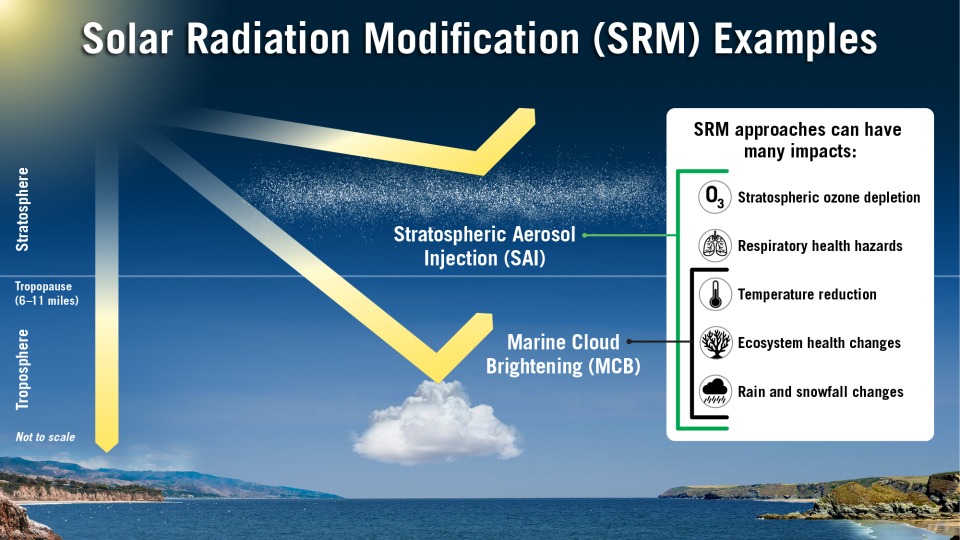As climate change continues to pose escalating risks worldwide, India stands at a critical juncture where traditional mitigation efforts alone may not suffice. Scientists and policymakers are increasingly advocating for research into solar radiation modification (SRM), a geoengineering approach that could help manage the country’s exposure to extreme heat and other climate impacts. This emerging field offers potential tools to supplement ongoing adaptation and emission reduction strategies, making it a vital area for India’s scientific and strategic focus.
Essential Insights on Why India Must Prioritize Solar Radiation Modification Research
Solar Radiation Modification involves techniques aimed at reflecting a portion of sunlight back into space, thereby cooling the planet and countering some effects of global warming.
Investing in SRM research is critical for India due to its vulnerability to heatwaves, unpredictable monsoons, and climate-induced stress on agriculture and water resources.
Developing indigenous capabilities and knowledge would ensure India’s scientific community contributes to global understanding and policymaking on SRM technologies.
Early-stage research can illuminate potential risks, ethical considerations, and governance frameworks necessary to manage SRM responsibly.
SRM is envisioned not as a standalone solution but as a complementary tool within a broader climate resilience and sustainability agenda.
Understanding The Science And Potential Role Of Solar Radiation Modification
Solar Radiation Modification encompasses a range of techniques such as stratospheric aerosol injection and marine cloud brightening. These methods aim to reduce the amount of solar energy reaching Earth’s surface, thus lowering temperatures temporarily. While still experimental, SRM could help avert some of the worst climate scenarios if carefully researched and tested.
For India, with its dense population and dependence on climate-sensitive sectors, such interventions might provide a buffer against extreme weather episodes and help secure livelihoods while global emissions are curtailed.
Evaluating The Strategic And Ethical Dimensions
Rigorous scientific study is essential to assess the efficacy, side effects, and long-term consequences of SRM interventions.
Ethical and governance concerns arise because SRM deployment could have uneven regional impacts and raise questions of international responsibility and consent.
India’s participation in SRM research can ensure that the unique socio-economic and environmental context of the region is considered in global decision-making.
Establishing clear regulatory pathways and international cooperation frameworks can guide responsible development and potential deployment of SRM technologies.
Why India’s Climate Future Depends on Forward-Looking Research
India is among the countries most exposed to climate vulnerabilities, with recent years witnessing record-breaking heatwaves and shifting monsoon patterns. These trends threaten food security, public health, and economic stability. While renewable energy expansion and emission reductions remain fundamental, they are long-term endeavors. SRM research could offer an additional toolset to mitigate near-term risks and support adaptation.
Furthermore, investing in SRM research strengthens India’s capacity to contribute as a global climate leader, ensuring its voice is heard in shaping international norms around emerging climate technologies.
What Steps Should India Take Now
Increase funding for multidisciplinary research on solar radiation modification within national scientific institutions and universities.
Foster collaborations with international climate research centers to exchange knowledge and leverage expertise.
Initiate public engagement and policy dialogues to build awareness and deliberate on the governance of SRM.
Integrate SRM research into India’s broader climate action plans, ensuring it complements mitigation and adaptation measures.
Monitor global developments and participate actively in international forums governing geoengineering technologies.
In conclusion, solar radiation modification research represents a powerful yet complex frontier in the climate change battle. For India, proactive investment in this field is not merely a scientific pursuit but a strategic necessity to safeguard its environment, economy, and citizens against escalating climate threats. Thoughtful engagement today can pave the way for informed, ethical, and effective climate solutions tomorrow.
Sources: Ministry of Environment, Forest and Climate Change, Indian Institute of Science, Intergovernmental Panel on Climate Change, Global Climate Governance Research initiatives
